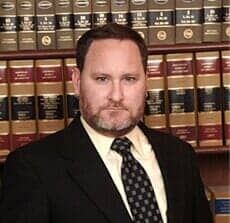Probate Law Attorney
Probate of Estates Information
Wills & Probate
• Wills
• Probate
• Probate
COMMON QUESTIONS:
What Is A Will?
A Will is a document that says what one wants done with his or her property when he or she dies. It can also be used for special instructions such as who is to be the guardian of one's child and whether one wishes to be buried or cremated.What Happens If One Dies Without A Will?
If one dies without a Will (intestate), Florida law specifies who will inherit the property.Can One Provide For a Minor Child in A Will?
Yes.What Is Probate of an Estate?
Probate of an estate is the court procedure whereby the estate's personal representative marshalls the assets, pays any debts and distributes the property owned by the deceased to the rightful heirs, according to the terms of a Will or the laws of intestacy. The personal representative must retain a probate attorney to represent him or her in this procedure.How Often Does One Need To Do A Will?
A Will is good for a lifetime but if there are major changes to one's lifestyle, one may want to change his or her Will also. For instance, if one remarries, he or she may want the assets to go to the new spouse instead of the former spouse.Summary administration: The type of court proceedings used in Florida to pass title to a decedent's assets to the decedent's intended heirs may be had in the administration of either a resident or nonresident decedent's estate, when it appears:
(1) a. In an intestate estate (when there's no will) or b. in a testate estate (when there is a will) which does not direct administration as required by chapter 733, and it appears (2) that the value of the entire estate subject to administration in Florida, less the value of property exempt from the claims of creditors (homestead), does not exceed $75,000 or that the decedent has been dead for more than 2 years.
What is probate?
Probate is a legal process that takes place after someone dies. It includes:- proving in court that a deceased person's will is valid (usually a routine matter)
- identifying and inventorying the deceased person's property
- having the property appraised
- paying debts and taxes, and
- distributing the remaining property as the will (or state law, if there's no will) directs.
Typically, probate involves paperwork and court appearances by lawyers. The lawyers and court fees are paid from estate property, which would otherwise go to the people who inherit the deceased person's property.
How does the probate process work?
Probate usually works like this: After your death, the person you named in your will as executor -- or, if you die without a will, the person appointed by a judge -- files papers in the local probate court. The executor proves the validity of your will and presents the court with lists of your property, your debts, and who is to inherit what you've left. Then, relatives and creditors are officially notified of your death.Your executor must find, secure, and manage your assets during the probate process, which commonly takes a few months to a year. Depending on the contents of your will, and on the amount of your debts, the executor may have to decide whether or not to sell your real estate, securities, or other property. For example, if your will makes a number of cash bequests but your estate consists mostly of valuable artwork, your collection might have to be appraised and sold to produce cash. Or, if you have many outstanding debts, your executor might have to sell some of your property to pay them.
In most states, immediate family members may ask the court to release short-term support funds while the probate proceedings lumber on. Then, eventually, the court will grant your executor permission to pay your debts and taxes and divide the rest among the people or organizations named in your will. Finally, your property will be transferred to its new owners.
Does all property have to go through probate when a person dies?
No. Most states allow a certain amount of property to pass free of probate or through a simplified probate procedure.In addition, property that passes outside of your will -- say, life insurance, a joint bank account, through joint tenancy or a living trust -- is not subject to probate.
Who is responsible for handling probate?
In most circumstances, the executor named in the will takes this job. If there isn't any will, or the will fails to name an executor, the probate court names someone (called an administrator) to handle the process. Most often, the job goes to the closest capable relative or the person who inherits the bulk of the deceased person's assets.If no formal probate proceeding is necessary, the court does not appoint an estate administrator. Instead, a close relative or friend serves as an informal estate representative. Normally, families and friends choose this person, and it is not uncommon for several people to share the responsibilities of paying debts, filing a final income tax return and distributing property to the people who are supposed to get it.
Should I plan to avoid probate?
Probate rarely benefits your beneficiaries, and it always costs them money and time. Probate makes sense only if your estate will have complicated problems, such as many debts that can't easily be paid from the property you leave.Whether to spend your time and effort planning to avoid probate depends on a number of factors, most notably your age, your health, and your wealth. If you're young and in good health, adopting a complex probate-avoidance plan now may mean you'll have to re-do it as your life situation changes. And if you have very little property, you might not want to spend your time planning to avoid probate because your property may qualify for your state's simplified probate procedure.
But if you're in your 50s or older, in ill health, or own a significant amount of property, you'll probably want to do some planning to avoid probate.
Living Will:
Living Will is a document that authorizes a loved one to make the decision to stop treatment by a hospital on your behalf in the event that a terrible accident or illness which renders you incapable of sustaining life without constant aide of respirator or equipment.
Living Will is a document that authorizes a loved one to make the decision to stop treatment by a hospital on your behalf in the event that a terrible accident or illness which renders you incapable of sustaining life without constant aide of respirator or equipment.
Health Care Surrogate:
Health Care Surrogate is a document that authorizes a loved one to make the decision on your behalf for the type of additional or alternative treatment a doctor performs if an unexpected issue arises during the course of surgery that you have not already authorized the Doctor to perform.
Health Care Surrogate is a document that authorizes a loved one to make the decision on your behalf for the type of additional or alternative treatment a doctor performs if an unexpected issue arises during the course of surgery that you have not already authorized the Doctor to perform.
Durable Power of Attorney:
Durable Power of Attorney is a document that authorizes another individual to make decisions on your behalf in the event you are mentally or generally incapacitated. This document may also provide an individual authority for a specific purpose.
Durable Power of Attorney is a document that authorizes another individual to make decisions on your behalf in the event you are mentally or generally incapacitated. This document may also provide an individual authority for a specific purpose.
South Florida Probate Court Links
The following are helpful links to some Florida Probate Court Websites to provide you with information about probate court.
Link to Miami Dade County Probate Court
-Including Miami, Coral Gables, Coconut Grove, South Miami, Kendall, Homestead, North Miami, North Miami Beach, Miami Beach, Hialeah, Miami Shores, Miami Lakes, Miami Springs, Aventura, Bal Harbour, Bay Harbor Islands, Hialeah, Hialeah Gardens, Key Biscayne, Pinecrest, Surfside, Cutler Bay, Doral, Golden Beach, Indian Village, Islandia, Medley, Miami Gardens, North Bay Village, Sunny Isles Beach, Sweetwater, Virginia Gardens, Florida City, Goulds, Homestead, and Biscayne Park.
Link to Palm Beach County Probate Court
-Including Boca Raton.
Link to Broward County Probate Court
-Including Hollywood, Pembroke Pines, Coconut Creek, Tamarac, Miramar, Coral Springs, Margate, Sunrise, Plantation and Fort Lauderdale, and Pompano Beach.
Link to Saint Lucie County Probate Court
Link to Collier County Probate Court
Link to Monroe County Probate Court
Link to Martin County Probate Court
Link to Miami Dade County Probate Court
-Including Miami, Coral Gables, Coconut Grove, South Miami, Kendall, Homestead, North Miami, North Miami Beach, Miami Beach, Hialeah, Miami Shores, Miami Lakes, Miami Springs, Aventura, Bal Harbour, Bay Harbor Islands, Hialeah, Hialeah Gardens, Key Biscayne, Pinecrest, Surfside, Cutler Bay, Doral, Golden Beach, Indian Village, Islandia, Medley, Miami Gardens, North Bay Village, Sunny Isles Beach, Sweetwater, Virginia Gardens, Florida City, Goulds, Homestead, and Biscayne Park.
Link to Palm Beach County Probate Court
-Including Boca Raton.
Link to Broward County Probate Court
-Including Hollywood, Pembroke Pines, Coconut Creek, Tamarac, Miramar, Coral Springs, Margate, Sunrise, Plantation and Fort Lauderdale, and Pompano Beach.
Link to Saint Lucie County Probate Court
Link to Collier County Probate Court
Link to Monroe County Probate Court
Link to Martin County Probate Court
For Trusts
Information, go to:
Florida Trust Law
Florida Trust Law
For a free consultation, and legal assistance, call (305) 373-9999
for an appointment or call toll free 1 (800) 966-4041
for a free out-of-town telephone consultation.
Florida Trust Litigation Information
Florida Trust Litigation. Florida Trust Litigation involves beneficiaries who have been affected by improper actions of an individual (often a trustee). Trust Disputes involve trust contests, trust construction, breach of a fiduciary duty, removal of a fiduciary, and trust accounting disputes.
Trust Contests
Under current Florida Law, a Florida Revocable Trust must comply with the statute of wills. This means it must be witnessed and notarized correctly to be valid. The most common disputes in Florida Trust Litigation involve: Mistake in Execution.
A Florida Trust is not valid unless created with the requirement for a valid Florida Trust. These include the :
- The Settlor having the capacity to create the trust;
- The Settlor indicating intent to create the trust;
- The trust must have a definite beneficiary unless charitable or for a pet; and
The trustee must have Duties to perform.
Undue Influence. A Florida trust may be invalid if the person making the Florida Trust did not create the trust or modify the trust freely or was coerced by a person who was in a position of trust and control.
Lack of Capacity. A Florida Trust may be invalid if when the Florida Trust was executed the Settlor or Grantor did not have the required mental ability to understand:
- The amount and nature of the property;
- Who would have normally received the property; and
- How the Florida Will would have disposed of the property
Trust Construction
Sometimes a Florida Trust cannot accomplish the goals of the creator. Other times there are mistakes in the language or ambiguities that make performance of the trustee's duties difficult or impossible. When these types of issues arise or there is a need to modify the Florida Trust, the trust can be modified by consent of when the Settlor or creator is alive, but once the Settlor dies we often have the look to the Florida courts to do a judicial modification of the trust.Breach of a Fiduciary Duty
A person who accepts the role of a trustee or co-trustee in a Florida Trust has a duty to act for the benefit of the beneficiaries of the trust. If the Florida Trustee fails to properly administer a Florida Trust he can be liable to the other beneficiary for his mistakes. Sometimes beneficiaries seek to remove the trustee because of an act or the failure to act that causes a waist or mismanagement of the Florida Trust's assets. Another remedy that the beneficiaries of a Florida Trust can seek is called a surcharge action.Removal of an Agent or Fiduciary
In Florida an Trustee ( the agent or fiduciary) can be removed by a court when the Trustee is not acting properly. The Settlor, a co-trustee, or a beneficiary may request the court to remove a Florida Trustee, or the court may remove a trustee on the court's own initiative.Trust Accounting Disputes
In Florida beneficiaries of a trust have a right to an accounting. If they do not receive regularly accountings as defined by statute or the Florida Trust, then the beneficiary may seek the court to compel the trustee to account for the trusts assets. Other times accountings may be objectionable and beneficiaries may have to seek judicial intervention to obtain a proper accounting. If you believe that there is something wrong with the way a Florida Trust has been handled or your assets have not been dealt with fairly, and you would like a free consultation, and legal assistance, call
(305) 373-9999
for an appointment or call toll free 1(800) 966-4041
for a free out-of-town telephone consultation.
Guardianship Information
Guardianship
When a person is too young to make decisions or incapacitated and can no longer care for their own interests, guardian law allows the court to appoint someone to make legal, medical, housing, and financial decisions for them. A legal guardian may be appointed as a limited decision-maker or an all-purpose decision-maker. Nursing home residents may need a general legal guardian to make all their decisions for them. Guardianship lawyers advise you about the appropriate legal guardianship for your particular circumstances. They also help with guardianship forms and other legal paperwork, and represent the guardian once one is appointed.Is Guardianship a Legal Process?
Yes, guardianship is a legal proceeding in the Circuit Court of Florida in which a guardian exercises the legal rights for another individual called a ward.How to Establish a Guardianship?
A guardian may be appointed by the Court when an individual has been declared incapacitated because of he/she is under age, or because of mental illness. A court may also appoint a guardian for an individual who seems likely to be taken advantage of by others due to age.What do Guardians Do?
Guardians may be given various levels of responsibility. A plenary guardianship is a full guardianship over the person and/or property of the ward. A limited guardianship is one in which the guardian is responsible for specific areas of care but not all. The guardian of the person may be responsible for making decisions about medical treatment, mental and personal care services, and the residential living situation best suited for the ward. The guardian of the property might be responsible to inventory the property, invest it prudently, and use it for the ward's support. Often, the Court will approve these decisions beforehand.What Must a Guardian Do?
A Florida guardian is required to attend a court-approved training program which lasts about an hour. He or she is required to submit an annual report of the person and/or property to the Clerk of the Court for review. Any guardian who does not comply with court requirements may be removed.What is a Living Will?
A Living Will is a document that tells your doctors and hospitals whether you want to be kept alive by artificial means in the event of a serious illness. If the Living Will has not been followed, a guardianship may be necessary.Does a Guardianship require an Attorney?
Yes, a guardian must be represented by an attorney who will serve as the attorney of record. For a free consultation, and legal assistance, call (305) 373-9999
for an appointment or call toll free 1 (800) 966-4041
for a free out-of-town telephone consultation.
















